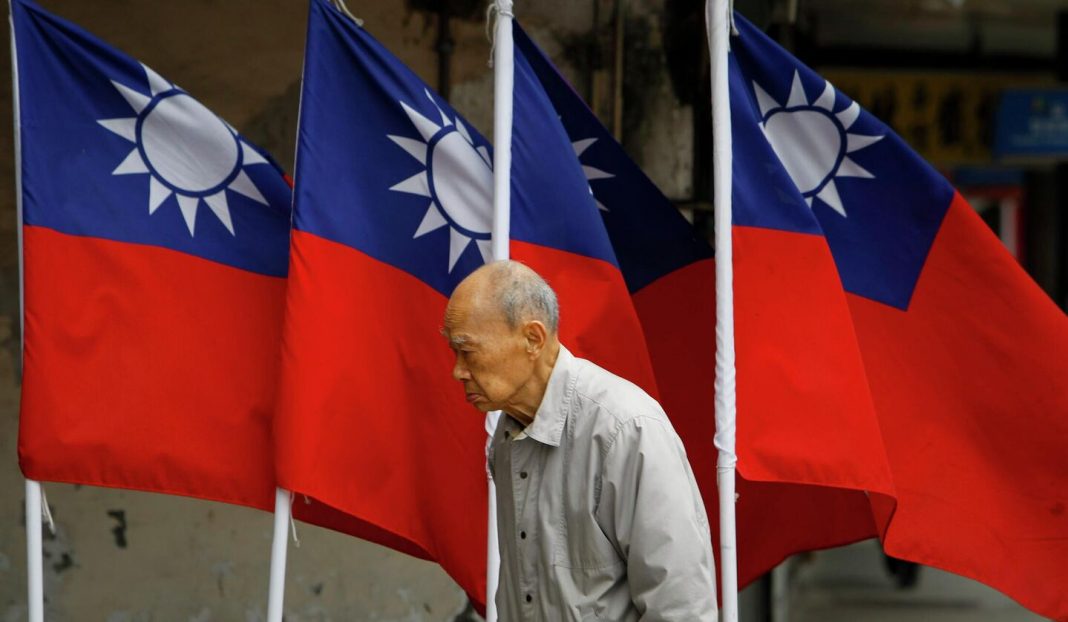2024 is the year of global elections. One of the first to start is Taiwan, where on January 13, about 20 million voters will have the opportunity to elect a new president and a unicameral parliament. It is noteworthy that the elections of the head of the island, as well as the expression of the will of citizens on other issues, are organised only on the territory controlled by the island. The island’s election legislation prohibits polling stations from being opened abroad.
Today, most analysts and the world’s media unanimously declare that these elections will have far-reaching global consequences. The new president must set the tone for relations between the two superpowers – China and the United States. The victory of the ruling Democratic Progressive Party will consolidate the course towards rapprochement with the West, and the opposition’s success may normalise dialogue with Beijing.
In this article, Ascolta analyses the situation in Taiwan in the run-up to the elections and examines the main historical and geopolitical aspects that may have domestic political influence and be a determining factor for the entire Asia-Pacific region.
This Content Is Only For Subscribers
Background
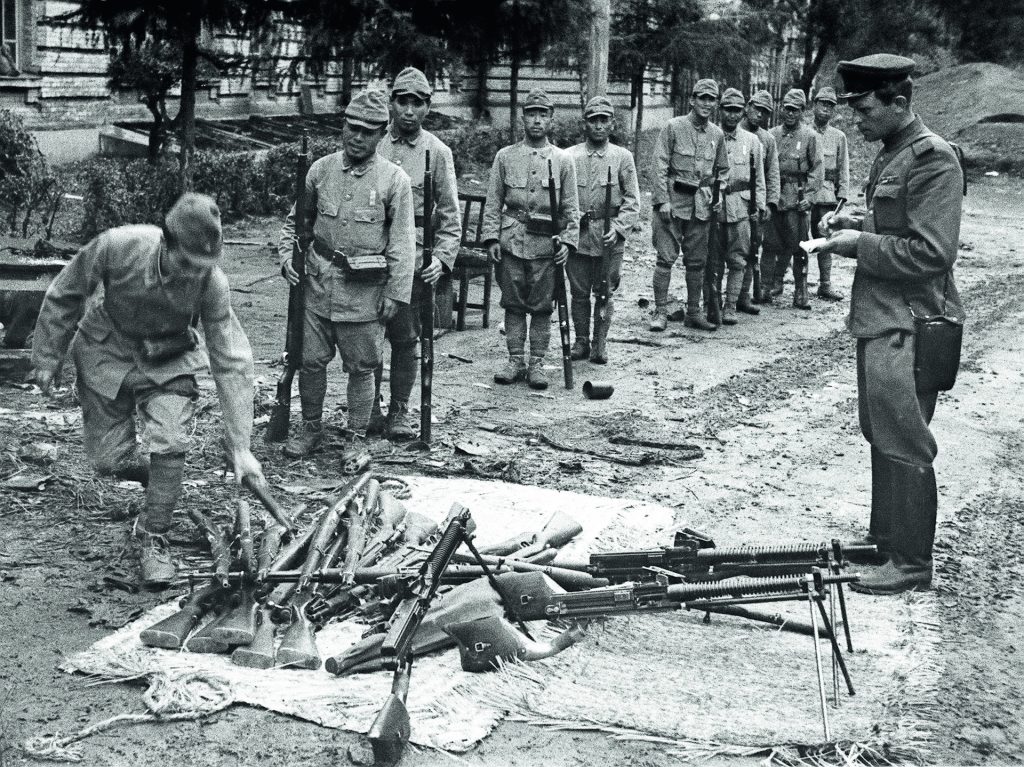
The origins of the “complicated” relationship between Taipei and Beijing lie in the era of the Chinese Civil War (1927–1949). As a result, the Communists under the leadership of Mao Zedong defeated the Nationalists under the leadership of General Chiang Kai Shek, who, after his defeat, along with more than two million of his followers, evacuated to the island of Taiwan (Formosa). In an intermittent conflict that lasted 21 years, the leadership of the Kuomintang Party lost to the forces of the Communist Party of China. On October 1, 1949, the communists proclaimed the creation of the People’s Republic of China and declared themselves successors to the defeated regime. Chiang Kai-shek’s forces, on the other hand, considered what was happening on the mainland to be a “communist insurgency” and continued to claim sovereignty over all of China. Until the 1970s, the leadership of the Republic of China in Taiwan enjoyed impressive diplomatic recognition and even represented China at the UN. However, in 1971, Taiwan was expelled from the organisation, and in 1979, its main ally, Washington, turned its back on Taipei, recognising the legitimacy of the communist government on the mainland. Currently, the Republic of China maintains diplomatic relations with 13 countries worldwide, mostly small island states. However, this does not prevent Taipei from developing its international relations through a network of trade and economic missions that function as embassies.
Beijing has been purposefully demonstrating its desire to gain control over Taiwan since the founding of the PRC. The reunification of the two sides of the strait is spelt out in the country’s constitution as a sacred duty of the Chinese people. The Chinese authorities insist that they intend to achieve their goal peacefully. Using force to resolve the issue is usually mentioned as a last resort. In addition to “luring” Taipei’s diplomatic allies into its camp, Beijing is trying to prevent the island’s de jure independence. According to the “Law on Countering Activities to Divide the Country,” adopted in 2005, attempts to change the status quo in the strait will force the Chinese People’s Liberation Army to respond with force.
Taiwanese democracy
Democracy and all the freedoms that go with it have not always been a hallmark of island life. Until 1987, the island was under martial law. The activities of political parties, except for the Kuomintang, were prohibited, and government institutions were preserved in their original composition.
The wave of democratisation also brought competitive general elections to Taiwan. The first popularly elected head of the region was Li Denghui in 1996. Coming from the Kuomintang Party, he is rightfully considered one of the architects of Taiwan’s political liberalisation. Subsequently, a two-party system of power actually emerged on the island, and the Kuomintang, which had grown into power, was challenged by the young Democratic Progressive Party (DPP), which advocated the independence of the island. Since 2000, candidates from both parties have succeeded each other in the top job. From 2000 to 2008, Taiwan was led by DPP representative Chen Shui-bian, and for the next eight years, the island administration was headed by Kuomintang-nominated Ma Ying-jeou.
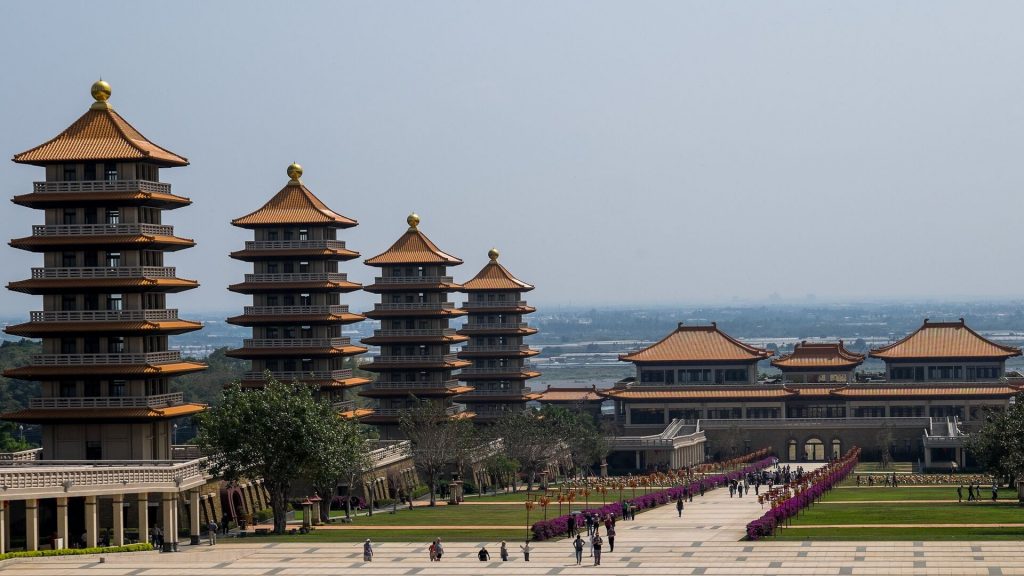
Today, Taiwan is one of the most liberal and free countries, respecting diversity, human rights and civil liberties. Among other things, the island recently significantly reduced the number of citizen signatures required to launch popular legislative initiatives and to hold referendums. As a result, in recent years, voters in Taiwan have held more than a dozen votes on topics such as food safety, nuclear energy and the general functioning of democracy. The desire of Taiwanese society to preserve democracy has been particularly strengthened against the background of the process of gradual “winding down” of democracy in Hong Kong. According to experts, this process clearly showed the value of Beijing’s promises to create “one country with two different systems.”
Between Washington and Beijing
Taiwan’s de facto independence has been a stumbling block in US-China relations for many years. The White House has pursued a “one China policy” since 1979 while maintaining “strategic ambiguity” regarding the island. Formally recognising the PRC as the only legitimate government of China, the American side maintains extensive ties with Taipei. Under the Taiwan Relations Act, adopted in 1979, Washington supplies it with weapons and pledges to help maintain peace in the strait. Therefore, it is no coincidence that the issue of Taiwan became one of the key topics of negotiations between US President Joe Biden and Chinese President Xi Jinping, held on November 15 in San Francisco.
According to the Chinese leader, Taiwan is the most sensitive in US-China relations. For Beijing, gaining control of Taiwan should be a step towards the “great rejuvenation of the Chinese nation.” Taiwan is important to Washington as an outpost of influence in the Asia-Pacific region, a key supplier of semiconductor products and a showcase of democratic order.
In October 2022, at the Party Congress, Xi Jinping stressed that China will strive for a peaceful resolution of the situation with Taiwan, but will never give up the right to use force. Taipei then responded that it would not give up its sovereignty or compromise on issues of freedom and democracy.
Tensions between the superpowers began to rise in August 2022, when then-Speaker of the House of Representatives Nancy Pelosi made a very impulsive act – she arrived on an official visit to the island to negotiate with the local administration. The arrival of a third party in the US government hierarchy forced China to resort to equally impulsive actions: Beijing began large-scale military exercises with shooting around the island. Now, such operations are carried out frequently, including beyond the median line – this is the unofficial maritime border between Taiwan and mainland China, and its status is not recorded anywhere. In addition, PLA aircraft periodically enter Taiwan’s air defence identification zone. On December 11, a strike group led by the aircraft carrier Shandong passed through the Taiwan Strait.
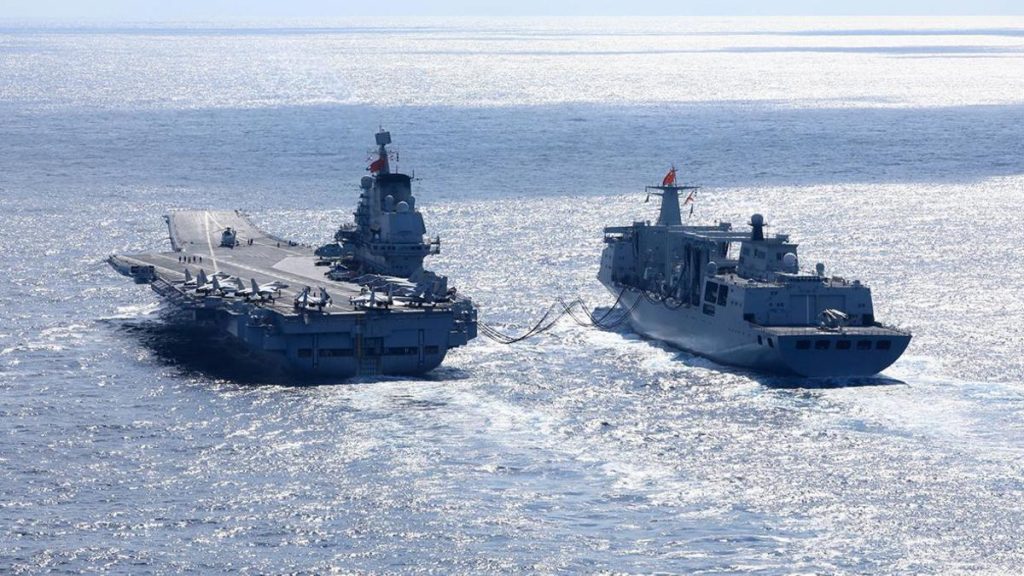
President Joe Biden appears to be reluctant to ease tensions and is telling Beijing that the United States is ready to defend Taipei in the event of an “attack” from mainland China. Support is also expressed in arming the island. Washington’s supplies have already exceeded $14 billion. In August 2023, it allocated another $80 million to Taiwan as part of the American Foreign Military Financing (FMF) program. Until now, it has only been used to help UN-recognised countries and organisations.
Beijing, of course, disapproved of such a step. As the American Foreign Policy Research Institute (FPRI) notes, conflicts in the Middle East and Ukraine, in which the United States is closely involved, make it difficult for Washington to help Taiwan in the event of an “attack,” primarily in financial terms. Congress has failed to approve Biden’s $106 billion aid package, tens of billions of which would go toward US interests in the Asia-Pacific region. The United States is using Taiwan as a base to maintain influence in the region and contain China.
Two doctors and one policeman
For Taiwan voters, the question of which candidate will preserve peace across the Taiwan Strait is existential. Many people are concerned about other issues besides China. But whatever decision they make on January 13, the consequences will be felt throughout the region.
On November 4, 2023, registration of candidates for President and Vice President of Taiwan ended in Taipei. In total, three candidates will compete for the right to lead Taiwan over the next four years: Lai Ching-te from the Democratic Progressive Party (DPP), Hou Yu from the Kuomintang and a representative of the Taiwan People’s Party Ko Wen-je.
64-year-old Lai Jing-te is a physician by training, the current chairman of the ruling DPP and deputy head of the island administration. Lai stands out among his opponents for his wealth of political experience. He has served as head of the Executive Yuan (the island’s government), six years as mayor of the island’s sixth-largest city, Tainan, and a 12-year career as a deputy of the Legislative Yuan. Lai was the clear favourite in the DPP primaries. In April, the party approved his candidacy after an uncontested preliminary vote – none of his comrades dared to challenge him.
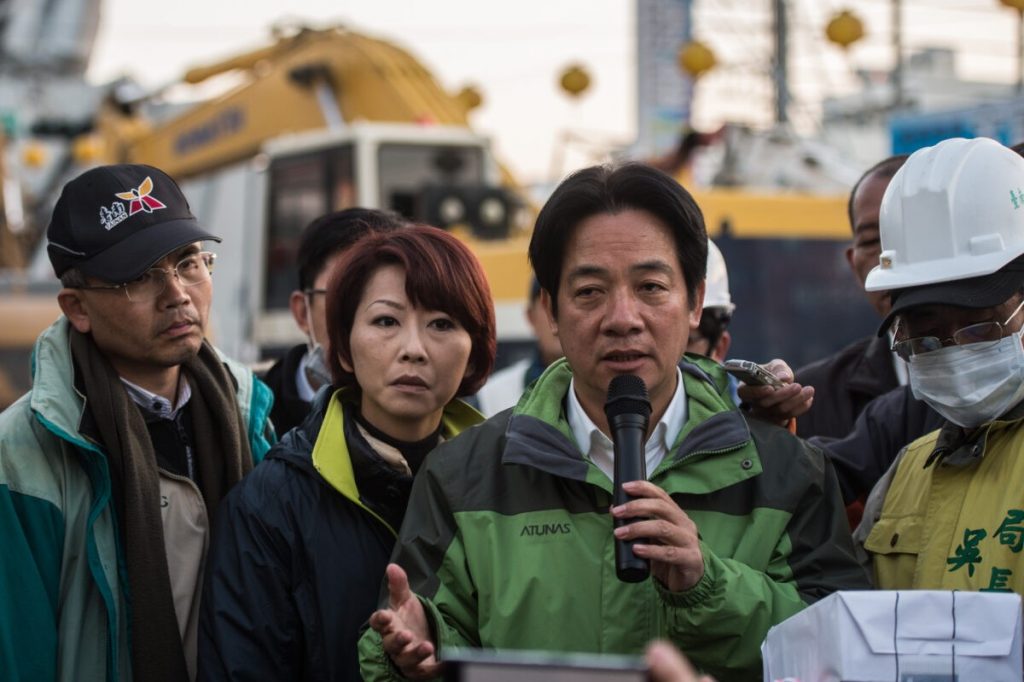
Lai Ching-te is an ardent advocate of Taiwanese independence. Speaking as the 49th Prime Minister of the Republic of China, he stated: “…I am a politician who advocates the independence of Taiwan” and also that “we are already an independent sovereign state called the Republic of China, and we do not need a separate declaration of independence”. The head of the DPP assures that the island is at the forefront of the spread of Chinese authoritarianism in the world. The candidate’s political position largely echoes the beliefs of the current head of the island, Tsai Ing-wen.
Xiao Meiqin will apply for the position of deputy head of the island administration together with Lai Jing-te. Born in Japan and a former American citizen (she renounced her US citizenship to pursue a political career in 2002), Xiao is respected as a shrewd politician and career diplomat. She has served as Taiwan’s representative to the United States for the past three years. Past party experience, knowledge of international affairs and tacit approval from Washington make Xiao Meiqin an important asset to the DPP’s election campaign.
Beijing has never hidden its negative attitude towards the Democratic Progressive Party of Taiwan, which advocates the island’s independence and further rapprochement with the United States. Over the past eight years, during which DPP member Tsai Ing-wen has headed the island administration, relations between Beijing and Taipei have been essentially frozen. The visit to Taiwan in August 2022 by then Speaker of the US House of Representatives Nancy Pelosi almost brought the two parts of China to the brink of war.
Unsurprisingly, as elections approached on the island, Beijing did a lot to prevent the rise to power of another DPP protege – current Vice President Lai Ching-te, who was dubbed on the mainland as a “stubborn, radical supporter of Taiwanese independence.”
Unlike Lai Ching-te, the candidate of the main opposition Kuomintang party, Hou Yui, gained fame in crime fighting and became famous as one of the most effective police officers on the island. Beginning in the 1980s, Howe worked for the Police Department and was responsible for dozens of dangerous criminals caught and gang cases solved. The homeland did not forget Hou’s professional merits, and in 2006, he headed the Taiwan police.
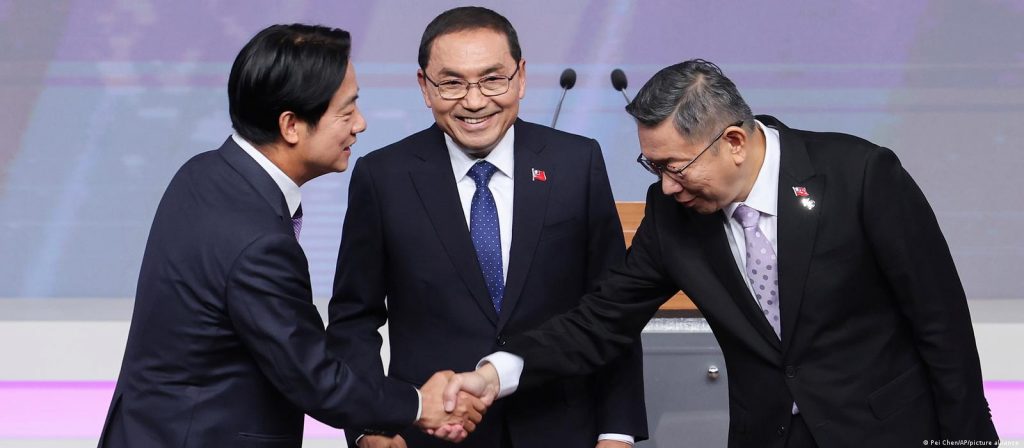
Hou Yui entered politics in 2010 when he was appointed vice mayor of the newly formed New Taipei Central City. In 2018, Hou won the New Taipei mayoral election and repeated his success four years later. Hou Yui is popular among the people because of his “Taiwaneseness” – he often addresses voters in the southern Fujianese dialect of Chinese, historically widespread on the island.
The Kuomintang party’s candidacy for the post of vice president was approved on the last day of registration – November 24. One of the prominent politicians of the first wave of Taiwanese democratisation, Zhao Shaokang, entered in tandem with Hou Yu. By the mid-1990s, he became disillusioned with his native Kuomintang party and founded his own New Party. Unlike Hou Yuyi, who is seen as a compromise-neutral figure, Zhao Shaokang is harsh in his political rhetoric. In particular, he openly advocates unification with mainland China.
The third candidate, Ko Wen-jae, also initially became famous outside politics. Since the 1980s, Ko has been known as an outstanding surgeon. Ko Wen-jae entered politics in 2012 after a scandal at his home hospital, National Taiwan University. Then, several patients were transplanted with organs from HIV-infected donors, placing the main responsibility on Ko Wen-jae.
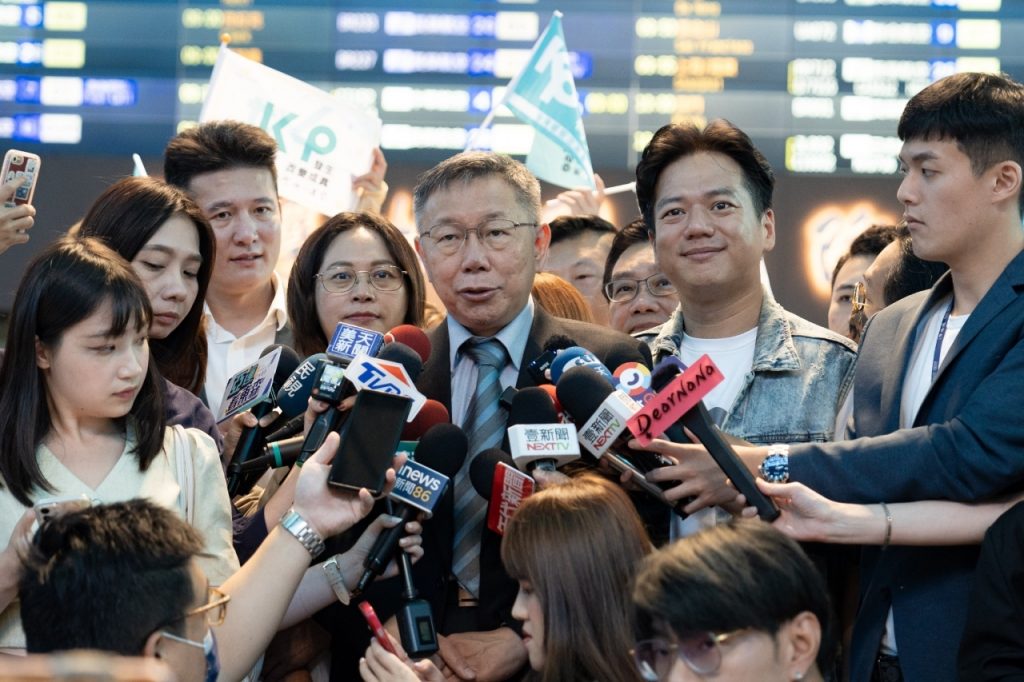
For him, the transition to politics became an attempt to fight for justice. In 2014, non-party candidate Ko Wen-jae was elected to the post of mayor of the island’s main city, Taipei, and in 2018, he was re-elected for a new term. In 2019, Ko founded his party, the Taiwan People’s Party, which positions itself as an alternative to the DPP and the Kuomintang. As mayor of Taipei, Ko Wen-jae did not have outstanding achievements, but he is relatively popular among the younger generation. His advantages include a good reputation and non-alignment with power blocs, while his disadvantages include insignificant political experience.
Last October, he caused outrage by comparing cross-strait relations to treatment for prostate cancer. Ko said prostate cancer patients can often live a long time, while removing the prostate can cause a quicker death. According to experts, it was supposed to be a metaphor for the importance of coexistence with one’s enemies, but it was widely criticised, including by Taiwanese urologists.
The choice of Ko Wen-jae as a candidate for the post of vice president also became controversial. Wu Xinying will go to the polls with Ko. She got into politics from business – Wu’s father is the head of the large financial conglomerate Xinguang. Since 2020, Wu Xinying has represented the Taiwan People’s Party in the Legislative Yuan. Controversy surrounding her candidacy arose in late November. Rivals suspected Wu of having dual citizenship because she was born in the United States.
What do candidates want?

The question of how to deal with China became dominant in the campaign’s final stages. The candidate’s position on this issue sets them apart from each other.
Lai Ching-te, who previously spoke out from a position of opposing China to protect Taiwan, somewhat softened his rhetoric before the elections. In a July op-ed for The Wall Street Journal, Lai outlined “four pillars of peace in the Taiwan Strait”:
- Strengthening the island’s defence capabilities;
- Maintaining the status quo;
- Expanding ties with democratic partners and promoting economic development.
However, William Lai’s position regarding the “big brother” remains unchanged: Taiwan’s independence and international recognition.
Kuomintang candidate Hou Yui has already been labelled a “Chinese servant” by his political opponents. Thus, in response to its recent statement that “Taiwan independence will lead to war with China and the war is getting closer,” the ruling party accused the opposition of pro-Chinese sentiments.
William Lai allowed himself a sharp attack on his competitors, saying: “If in the past the Kuomintang was the main force in the fight against the Chinese communists, then the current party leaders not only do not oppose the communists but are also pro-communist.” However, late last year, during the first televised debate between the three candidates, William Lai noted: “In the eyes of China, all three of us standing here running for president are in favour of Taiwanese independence.”
Hou Yu’s position on foreign policy issues is very pragmatic: containment, dialogue and de-escalation. Hou for normalising contacts with China and maintaining peace in the strait. And those who think that Hou is a “puppet” of China are mistaken. For example, Mr. Yu publicly spoke out not only against the independence of Taiwan, but also against the “one country, two systems” formula promoted by Beijing. In addition, in the event of its victory, the Kuomintang party promised to simultaneously normalise relations with the mainland and strengthen Taiwan’s defence capabilities. “We are under a great military threat, but our position is deterrence without provocation,” Alexander Huang, the party’s commissioner for international relations, outlined his approach to China.
As for the position of Ko Wen-jae and his team, in their opinion, relations with Beijing should be built based on reciprocity, respect and cooperation. The Taiwan People’s Party candidate articulates a “middle path” between the DPP and the Kuomintang in China and claims that he will work to preserve the current way of life for the Taiwanese. However, his policy is closer to the Kuomintang.
According to recent polls, more than 80% of Taiwanese voters favour maintaining the status quo in relations between Taipei and Beijing. Sentiments in the spirit of “if only there were no war” predetermined the growth of the opposition’s ratings. According to the latest My Formosa poll on December 20, William Lai is still the favourite in the race to become Taiwan’s chief executive with 35.2% support, but Hou Yi has narrowed the gap with him. The same rating will give him 30.6% of the votes. Ko Wen-je, who was at the bottom of the top three, received 18.2%. ETtoday also published on January 2 the results of a survey conducted between December 31 and January 1. 38.9% of respondents supported Lai Ching-te, 35.8% – Hou Yui, 22.4% – Ko Wen-je.
At the same time, the trend is very indicative. At the end of August, support for William Lai ranged from 35% to 43.7%, according to various polls. But the candidate from the Kuomintang at the end of the summer was given a maximum of 21.9% of the votes.
As for domestic political problems, the candidates’ positions are similar and do not provoke heated public debate. Taiwan residents are concerned about low wages by East Asian standards (the island’s minimum wage is US$880), inflation and difficulties in buying housing for young families. Another cornerstone issue is energy security. Massive power outages in 2017, 2019 and 2022 affected millions of households. As experts note, in the event of a Chinese blockade, gas, coal and oil reserves will last for 200 days.
This raised the question of reviving nuclear energy. At one time, there were four nuclear power plants on the island. However, Chornobyl, Fukushima and current Taiwanese President Tsai have all but buried nuclear power. The last station is due to close in 2025. Although Kuominlan candidate Hou called for a phase-out of coal and the restoration of nuclear power generation, the 2021 referendum, which voted against resuming NPP construction, indicates islanders’ scepticism on this issue.
Forecasts and expectations

As you know, forecasts are a thankless task. But several factors speak in favour of Lai’s victory. Firstly, the majority system of relative majority is used in elections. Secondly, the opposition did not nominate a single candidate, although there was such a possibility. At the end of October last year, both the Kuomintang and the “populists” practically agreed to form a coalition in the elections of deputies to the Legislative Yuan. At that time, they could not agree on a position on the issue of a single candidate from the opposition in the elections of the head of Taiwan, but the idea was not completely buried. It was decided that the “partners” would divide the presidential and vice-presidential posts based on the results of national polls.
On November 18, the agreement, which was dubbed the “blue-white coalition” according to the parties’ colours, began to crumble: the Kuomintang and the People’s Party began to blame each other based on the results of the polls. After several days of mutual attacks, Howe and Co. were forced to register and go to the polls separately.
For China, Lai Ching-te’s rise to power is undoubtedly the worst of all scenarios. For many years, the Kuomintang Party remained the only Taiwanese political force with which mainland China could interact and in whose victory Beijing was interested. And if the mainland always used a “stick” policy towards representatives of the DPP exclusively, then towards the Kuomintang members, it was more loyal.
However, Beijing can change favour to anger at any moment. Moreover, it seems that he is increasingly disillusioned with the political views of both the Kuomintang and the People’s Party, which call for the normalisation of relations between the two sides of the Taiwan Strait but does not intend to take steps towards unification.
Regardless of who comes to power, Beijing’s approach will remain unchanged: to view unification as a long-term goal and take an active wait-and-see position in the short term.
According to Kou Jianwen, director of the Institute of International Relations at National Chengchi University, Beijing will not renounce forceful influence on Taiwan even after the elections. Still, it will use military power to resolve the conflict peacefully. “If a representative of a party other than the DPP wins in 2024, will the PLA stop flying its fighters across the median line of the Taiwan Strait? This is impossible,” summarises Kou Jianwen.
However, more pessimistic expectations predict a war between China and the United States. The head of the Stimson Center suggested that Lai Ching-te would win the elections in Taiwan and declare independence for the island. China will launch a military operation, and the United States will use force.
Washington also froze in anticipation and observed carefully. He does not give preference to any of the candidates. Today’s main thing for the White House is that the new administration’s actions do not drag it into a new armed conflict. The experience of Ukraine and the Middle East shows that Washington is increasingly focusing on solving its internal problems. And the January elections in Taiwan only set the tone for global geopolitics in 2024.

